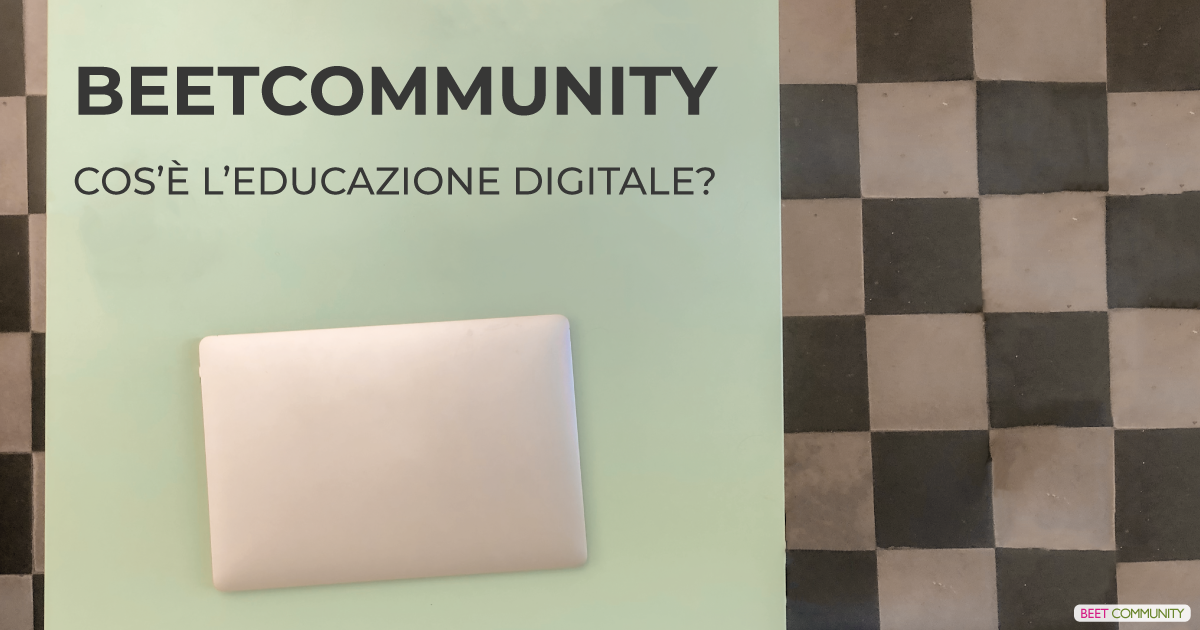Understanding what digital education is in order to make proper, conscious, and effective use of digital tools. Let’s see what it involves

Understanding what digital education is, is essential to making proper, conscious, and effective use of digital tools. Let’s see what it consists of and who it’s for.
It’s no surprise that we’re living in the era of the
Fourth Industrial Revolution:
Industry 4.0, Digital Transformation, AI, Cloud Computing,
Big Data,
Internet of Things—these are the keywords shaping a profound cultural shift, in which we live immersed in a
digital and interconnected world.
But mere technological knowledge, as fundamental and essential as it is, is not enough: what we all need is critical thinking, the
ability not only to use these tools but to understand their advantages and disadvantages, risks and benefits, in order to use them consciously. This is why today we talk about
digital education, or more precisely, digital civic education and digital skills: a learning and training process that should start from school, aiming to instill a certain level of awareness and practical skills in using digital tools.
Technological progress has become part of everyone’s daily life:
there’s no area of life that digital has not entered and influenced, transforming habits and customs for individuals, businesses, and institutions.
We live in a constantly evolving context, in which
new digital tools continuously transform the status quo and challenge us to learn and adapt to these changes.
The obsolescence of tools and knowledge has never been so fast, which is why it has become crucial for everyone to
develop the ability and willingness to stay updated. This is especially true for those who—both individuals and private/public entities—are used to operating in a rather static environment, where change has always happened gradually and slowly.
It’s as if we were all athletes, living in a vast gym where the only way to move forward is to play fair, constantly training to improve and avoid tripping over the hurdles of progress. That’s why
adequate digital education is essential—because using digital technology
requires not just practical skills but critical thinking to discern between the right and wrong ways to use it.
A Brief Overview
According to the EU: “A digitally competent (citizen) uses Information Society Technologies with confidence and a critical spirit in all areas of life. They possess basic skills in Information and Communication Technologies,” (Recommendation of the European Parliament and Council, December 18, 2006).
The underlying idea is that the
digital world has implications that, as mentioned,
affect many areas: education, work, family, health, public services, and leisure. We’re talking about a revolution with
social as well as ethical implications that requires responsibility and critical thinking.
Digital education is therefore a necessary training path that provides people with the technical and cultural tools to seize the opportunities of this revolution while protecting themselves from its potential risks.
For example, as the proverb goes, “not all that glitters is gold.” We know by now that not everything we find, read, and watch online is true.
Having the right tools and thus adequate digital education means being able to apply critical thinking to assess the reliability of information and sources, while also exercising responsibility in the circulation and perpetuation of certain content and behaviors.
This is why
alongside digital education, we talk about digital citizenship because no individual can opt out of the
civil responsibility to use online communication tools conscientiously.
Indeed, some of the most toxic phenomena have found their peak expression online, like
cyberbullying, child grooming,
revenge porn and
sextortion,
body shaming, identity theft, and incitement to hate or suicide (remember the
Blue Whale case).
It’s clear that
to protect oneself and others from these and other threats—and to unlock the extraordinary potential of digital—one must know, train, and acquire the necessary skills.
An Education for Everyone
The dynamic, fast-changing nature of digital technologies requires a certain
mental flexibility and a desire to explore and experiment in order to keep up. For this reason, acquiring digital skills and the related learning process is a continuous journey that demands commitment and method.
Schools are already working to build a
training system that meets the needs of the digital era through new teaching and learning methods: the aim is to engage new students—digital natives raised on technology—by providing them with the right education to face this new society, grow, and ultimately succeed in their careers.
At the same time,
digital education and skill development also concern those who are long past their school days:
professionals and entrepreneurs need not just to understand these new dynamics that shape society and markets, but also to manage, navigate, and harness them. And so, given the revolutionary nature of the digital world, staying updated and continuing to learn is not just important—it’s essential, if not obligatory.

